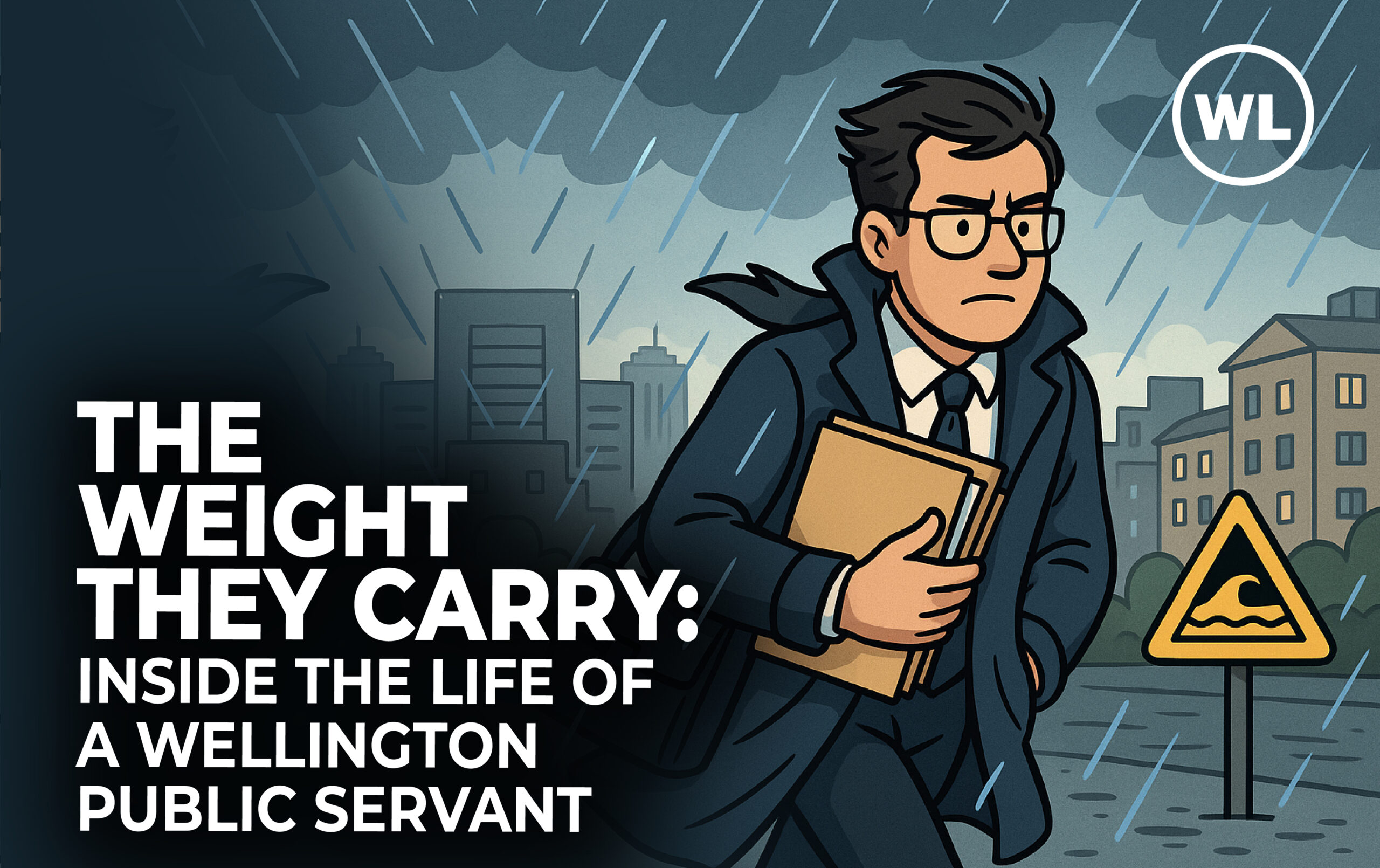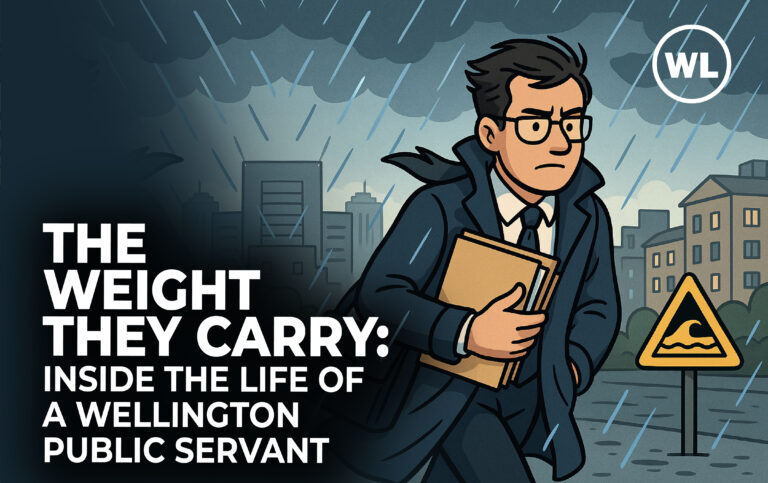When people picture Wellington, they see the Beehive, cable cars, flat whites, and that iconic sideways rain.
What they don’t often see…
Are the quiet, worn-down faces in office lifts. The people drafting policies while dripping wet from a broken umbrella. The ones fixing the system while living through its worst parts.
These are Wellington’s public servants.
🌧️ The Daily Storms
Being a public servant here isn’t glamorous.
It’s showing up early—even though your bus was 20 minutes late.
It’s replying to urgent emails about infrastructure failures, while pipes are bursting outside your own building.
It’s writing papers on housing reform, while your rent just went up—again.
It’s handling public frustration and media outrage, while staying silent, professional, and unseen.
It’s:
Fighting for small wins inside giant systems
Paying motorbike parking fees on a public sector salary
Watching small businesses close on the same streets you walk every day
Working inside a building where the windows don’t open, but the expectations never stop
Hearing public anger at tax increases—while your own pay stays the same
Getting stuck in tight traffic, rerouted due to another burst pipe, just to get to a meeting about urban planning
And still… they stay.
🖋️ A Poem for the Ones Who Stay
The Weight They Carry
Rain in their shoes, eyes on the screen,
They plan for the roads they barely keep clean.
The pipes burst loud, the inbox screams,
Still they dream the country’s dreams.
High rent signs and closing stores,
They walk past pain outside office doors.
Buses late, and coffee cold,
But they carry the future in files they hold.
No headlines praise, no crowds applaud,
Still they work with quiet, determined nod.
Policy drafts by a flickering light,
Hoping one day we’ll get it right.
Not for fame, not for pay,
But because they believe in a better day.
They are the spine in this city’s frame—
The ones you won’t know, but should name.
❤️ Why They Keep Going
It’s easy to criticise government workers.
It’s harder to see the weight they carry.
They stay not for the perks—but because they believe someone has to. That systems can improve. That people deserve better. That behind every plan and spreadsheet is a real person they might help.
They keep going through budget cuts, restructures, press scrutiny, and burnout—because somewhere deep down, they still believe in the value of service.
If you see one of them today—in line for coffee, waiting for the same late bus as you—know this:
They’re not the ones in the spotlight. But when the city stumbles, they’re the ones still holding the map.








